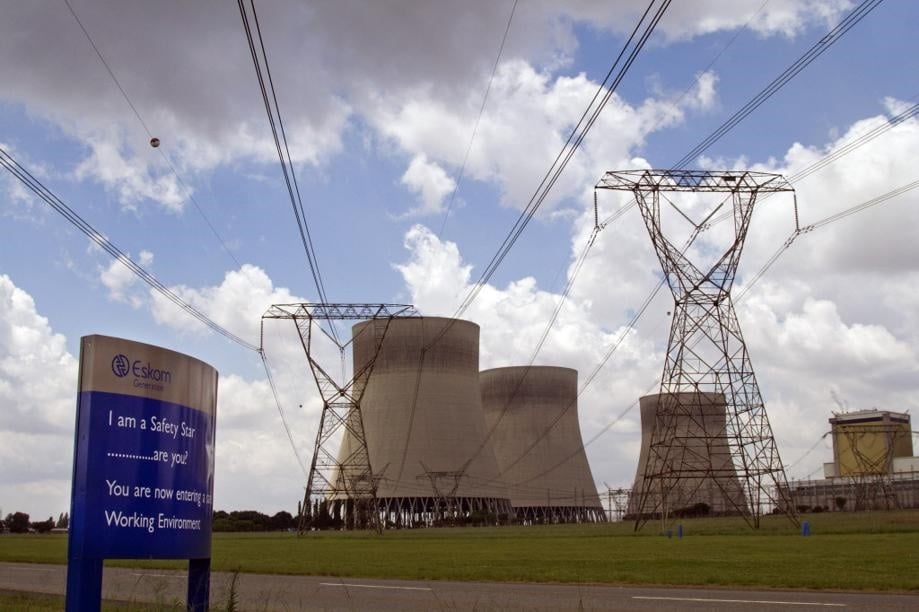
Eskom will get a R69-billion bailout that will increase state debt and debt-servicing costs
Finance Minister Tito Mboweni announced this in his maiden budget speech on Wednesday afternoon.
At the same time the state budget deficit will widen and the debt as a percentage of gross domestic product (GDP) will rise.
The R69 billion bailout will be spread over the three fiscal years ending March 2022 and will come in R23-billion annual payments. Including the Eskom bailout, total extra spending over the next three years will be R75.3 billion.
Mboweni also gave the South African Post Office a R1.5-billion bailout.
To try and partially offset the Eskom bailout and limit the amount of extra debt, Mboweni announced a R50.3-billion reprioritisation of expenditure over the next three fiscal years and 54% of the cuts coming from compensation budget adjustments.
The report indicates that, when compared with the medium-term budgetary policy statement in October, the main budget deficit is projected to widen to 4.7% of GDP in the 2020 fiscal year from a forecast 4.2%.
The 2019 fiscal year is forecast to end with a budget deficit of 4.2% up from 4% forecast at the medium-term budgetary policy statement.
The Eskom bailout and other extra expenditure will boost government debt and gross debt is expected to stabilise at 60.2% of GDP in the 2024 fiscal year up from a forecast debt to GDP percentage of 59.6% at the time of the medium-term budgetary policy statement.
Gross government debt is forecast to rise from R2.8 trillion at the end of March 2019 to R3.7 trillion in March 2022.
Debt service costs are also set to increase.
“Debt-service costs are higher than the 2018 budget estimates by R2.1 billion in the current year, R4.5 billion in 2019/20 and R10.2 billion in 2020/21,” the report said.
The major credit rating agencies may react unfavourably to the Eskom bailout but the reprioritisation of expenditure is an attempt to try and placate them.
The power utility had asked the government for a R100 billion bailout and Eskom has also applied to the National Energy Regulator of South Africa (Nersa) for three annual power price hikes of 15% or more over the next three years while at the same time looking to recover about R21 billion due to a revenue shortfall.
As a result of the Eskom bailout, the government hiked its expenditure ceiling by R16 billion over the next three years.
Investec economist Annabel Bishop this week wrote that: “On the expenditure side, the budget is likely to preserve the expenditure ceiling, which places a limit on main budget non-interest spending, outlined in the medium-term budgetary policy statement [in October] unless the capital injection to Eskom transpires not be deficit neutral.”
The expenditure ceiling for the fiscal year ending March 2019 will be maintained while the total hike of R16 billion will happen over the three fiscal years ending March 2022.
Eskom is its current form was not financially sustainable, nor could it meet the country’s power needs, 2019 budget review report said.
In this state of the nation speech, President Cyril Ramaphosa said that as part of the restructuring of Eskom it would be split into three units comprising generation, transmission and distribution.
“The Eskom board is developing a sustainable operational plan for each business. Government will give consideration to these proposal within the next three months,” the 2019 budget review report said.
“The first step in the separation process will be to transfer a portion of Eskom’s assets to a new transmission company … The new company will invite the participation of strategic equity partners that will provide capital for the business and strengthen oversight.”
“The financial support package, with strict conditions attached, will enable Eskom to restore positive cash flows and secure the necessary liquidity to undertake maintenance to restore stable electricity supply,” the report said.
“Further steps in restructuring the electricity market will be announced in the months ahead,” the report said.
The compensation adjustments to lower expenditure to make way for the Eskom bailout are a result of fewer state employees, which have fallen from 1.245 million in 2015 to under 1.23 million in 2018.
To try and cut more government employees and cut expenditure, the state is looking to increase early retirements.
“The combination of natural attrition and active measures allow a reduction of compensation budgets by R5.3 billion in 2019/20, R11 billion in 2020/21 and R10.7 billion in 2021/22. Wage increases for members of Parliament and provincial legislatures are frozen in 2019/20. In addition, public entities are encouraged to freeze salaries of employees earning R1.5 million or more in 2019/20, while those earning between R1 million and R1.5 million a year should receive a below inflation increase of 2.8%. This follows several years of below-inflation increases for senior management in national and provincial government.”
The wage freeze for political office holders will save R132.8 million of the amount transferred through the provincial share over the next three tax years.
“Several other state-owned companies are also in financial distress and have requested government support. As a result, the contingency reserve has been revised up by R6 billion in 2019/20 and any funding provided will be offset by the sale of non-core assets. Additional reforms to strengthen the governance, finances and operations of state-owned companies will be announced in the months ahead,” the 2019 budget review report said.
State companies that are looking for bailouts include the South African Broadcasting Corporation and Denel.
“Several state-owned companies face negative cash flows and are financing operations from debt, which has become increasingly difficult to raise. This moves them perilously close to default unless they receive some form of recapitalisation.”
 |
| ||||||||||||
| |||||||||||||




 Publications
Publications
 Partners
Partners








